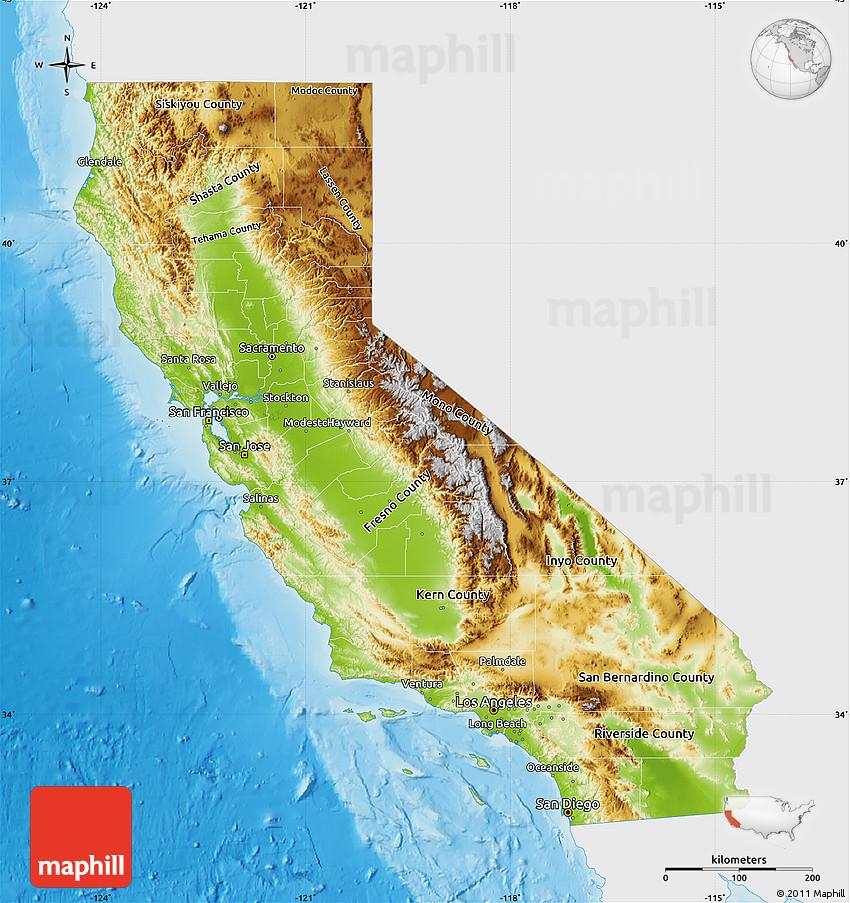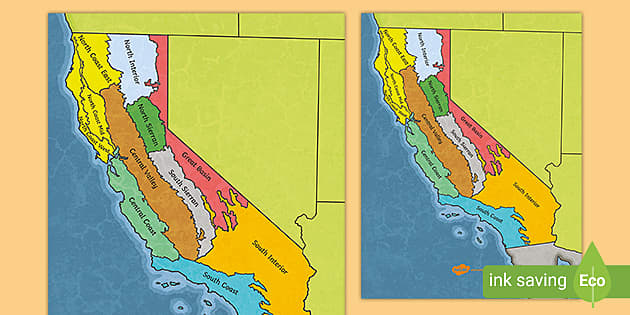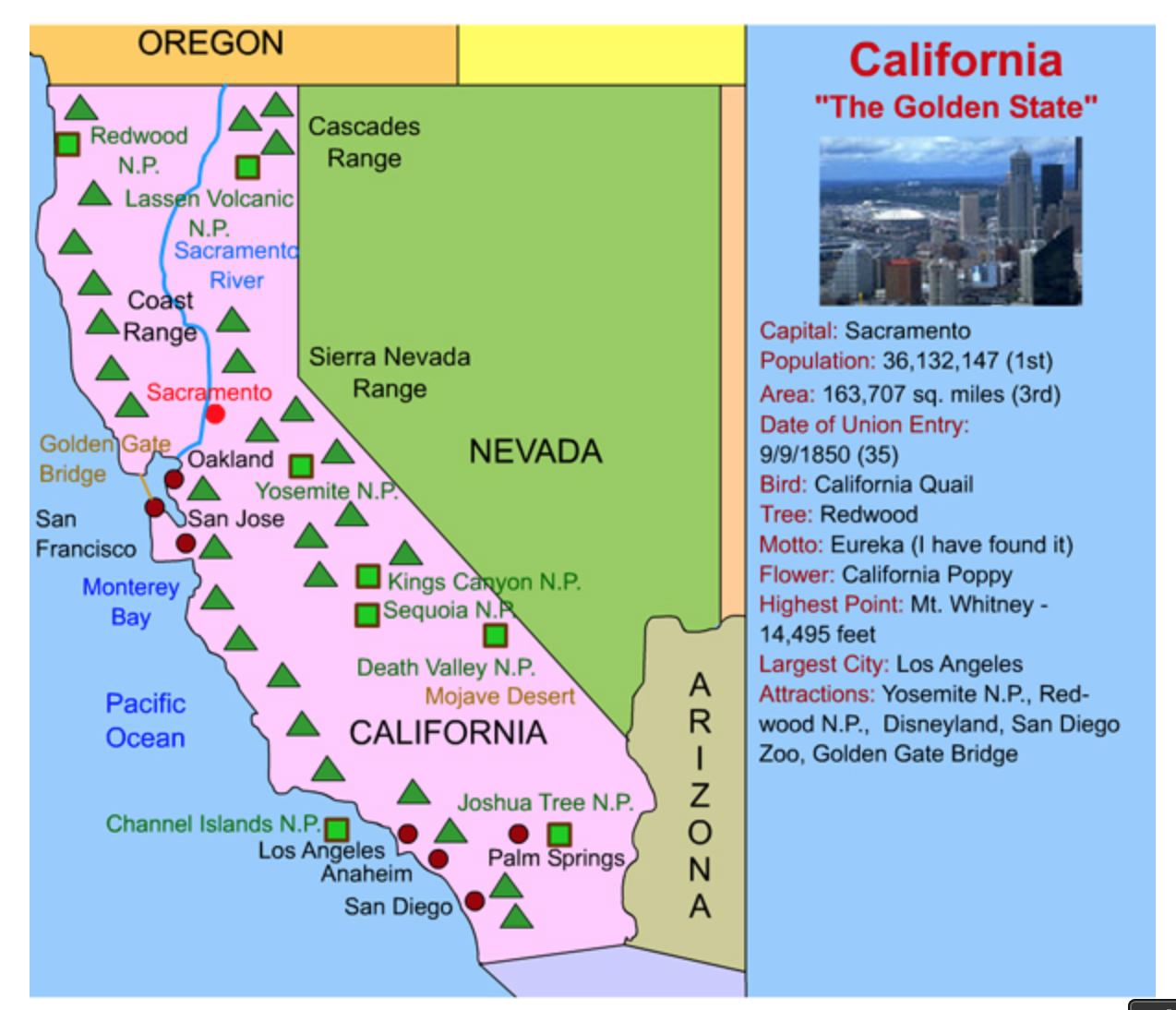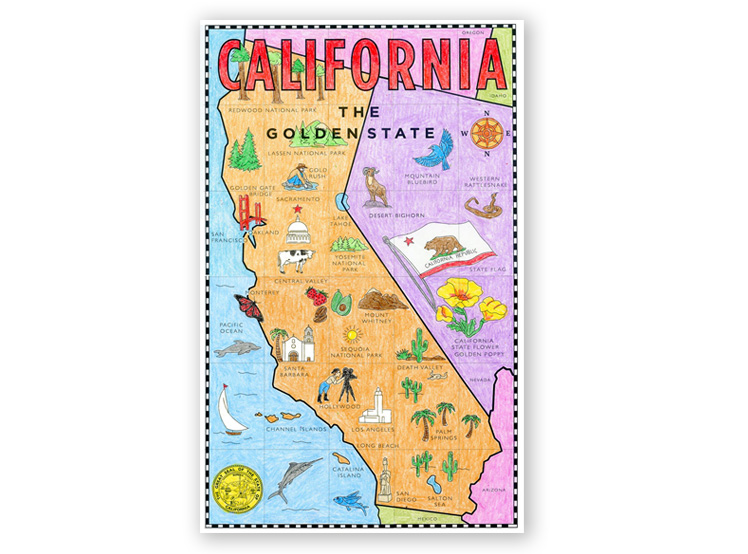Unveiling California’s Geography: The Educational Value of Map Coloring
Related Articles: Unveiling California’s Geography: The Educational Value of Map Coloring
Introduction
With great pleasure, we will explore the intriguing topic related to Unveiling California’s Geography: The Educational Value of Map Coloring. Let’s weave interesting information and offer fresh perspectives to the readers.
Table of Content
Unveiling California’s Geography: The Educational Value of Map Coloring

California, the Golden State, boasts a diverse landscape ranging from towering mountains to sun-kissed beaches. This captivating geography, with its iconic landmarks and distinct regions, makes California a prime subject for map coloring, an engaging activity with significant educational benefits.
The Power of Visual Learning
Map coloring transcends mere entertainment, serving as a powerful tool for visual learning. By engaging with a map through coloring, individuals actively process and internalize geographical information. This process fosters a deeper understanding of:
- Spatial Relationships: Coloring different regions of California helps visualize their proximity and interconnectedness, fostering an intuitive grasp of the state’s spatial organization.
- Physical Features: The act of coloring highlights key physical features like mountains, valleys, rivers, and deserts, enhancing comprehension of California’s diverse topography.
- Political Boundaries: Distinguishing between counties, cities, and other administrative divisions through color helps solidify understanding of California’s political structure.
Beyond the Basics: Enhancing Learning
Map coloring can be adapted to cater to different learning styles and age groups. Beyond basic color-by-number activities, advanced exercises can enhance understanding:
- Labeling: Adding labels to cities, towns, landmarks, and geographic features reinforces their association with specific locations on the map.
- Research: Assigning color palettes based on research themes, such as population density, climate zones, or economic activity, encourages exploration and analysis of California’s diverse characteristics.
- Creative Expression: Encouraging students to design their own color schemes or add artistic elements promotes creativity and personalizes the learning experience.
Benefits Beyond the Classroom
The benefits of California map coloring extend beyond the classroom, fostering a deeper appreciation for the state’s geography and its cultural diversity.
- Sense of Place: Coloring a map of California cultivates a sense of belonging and connection to the state’s diverse landscape, fostering a deeper understanding of its unique identity.
- Travel Inspiration: Engaging with a map can spark curiosity about different regions and destinations, encouraging exploration and travel within California.
- Civic Engagement: Understanding the state’s geography through map coloring can foster civic engagement and encourage informed participation in local and regional issues.
Engaging Activities for All Ages
Map coloring offers a versatile activity suitable for individuals of all ages, accommodating diverse learning styles and interests.
- Children: Simple color-by-number maps introduce basic geographical concepts, while more complex maps with labels and additional information can be used as children progress.
- Adults: Map coloring can be used for personal enrichment, travel planning, or even as a relaxing hobby.
- Educational Institutions: Map coloring can be incorporated into classroom activities, homeschooling curriculum, or even used as a tool for community engagement.
Frequently Asked Questions
Q: What are some resources for finding California maps for coloring?
A: Numerous online resources offer printable California maps for coloring, including educational websites, map publishers, and free online libraries.
Q: What are some tips for choosing the right California map for coloring?
A: Consider the age and skill level of the individual, the specific learning objectives, and the desired level of detail.
Q: How can map coloring be incorporated into a classroom setting?
A: Map coloring can be used as an introductory activity, a review tool, or as a creative project.
Tips for Successful Map Coloring
- Choose the Right Map: Select a map with appropriate detail and complexity for the target audience.
- Set Clear Objectives: Define the learning goals for the activity, whether it’s identifying key locations, understanding regional differences, or exploring specific themes.
- Encourage Exploration: Encourage individuals to research and gather information about different regions of California, fostering deeper understanding and engagement.
- Promote Creativity: Allow for individual expression and creativity, encouraging students to experiment with color palettes and artistic styles.
Conclusion
California map coloring is a powerful tool for learning, fostering a deeper understanding of the state’s diverse geography and its cultural tapestry. This engaging activity transcends mere entertainment, serving as a valuable educational resource for individuals of all ages. By utilizing the power of visual learning and promoting creativity, map coloring enhances knowledge, sparks curiosity, and cultivates a sense of place for California and its unique identity.








Closure
Thus, we hope this article has provided valuable insights into Unveiling California’s Geography: The Educational Value of Map Coloring. We appreciate your attention to our article. See you in our next article!
